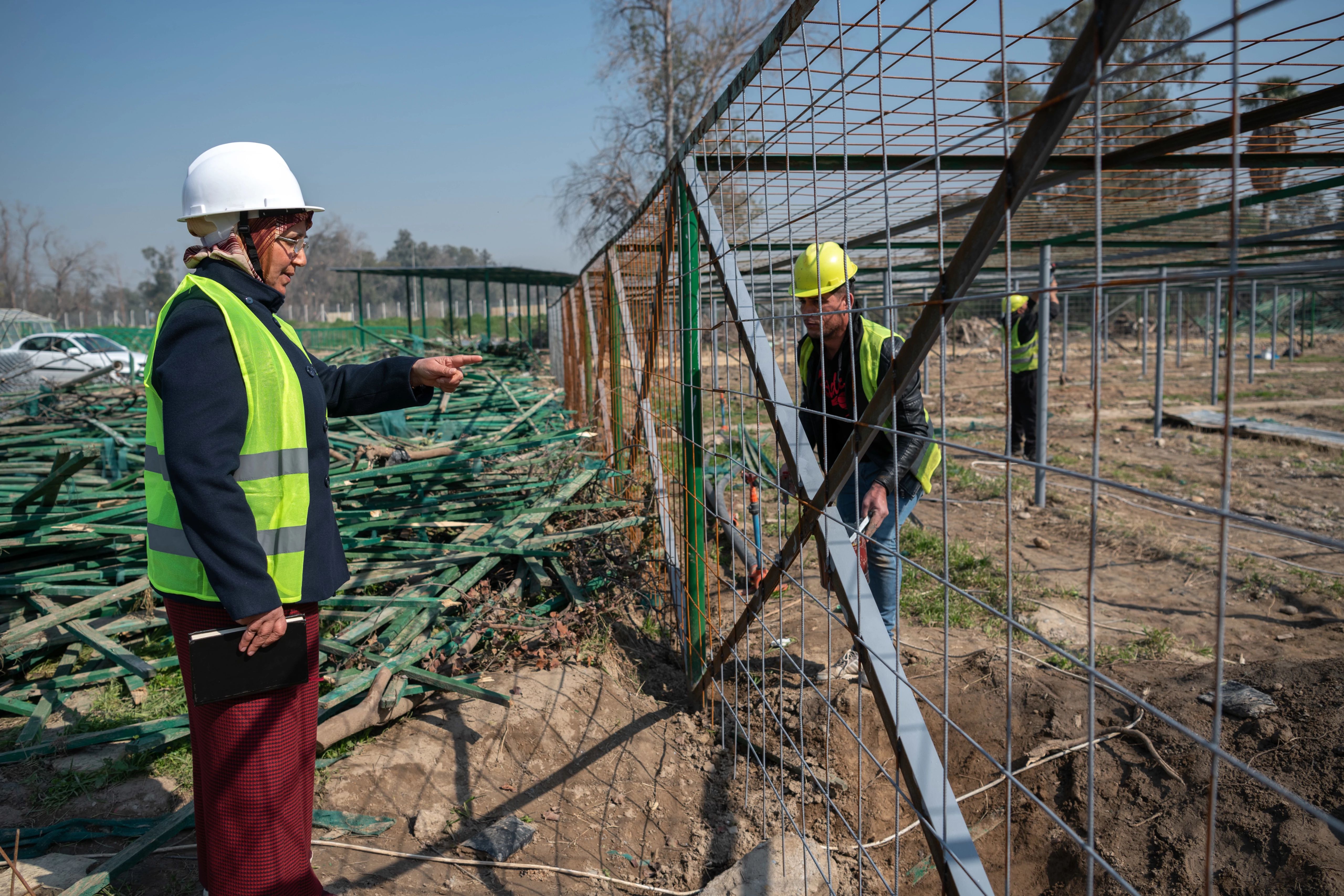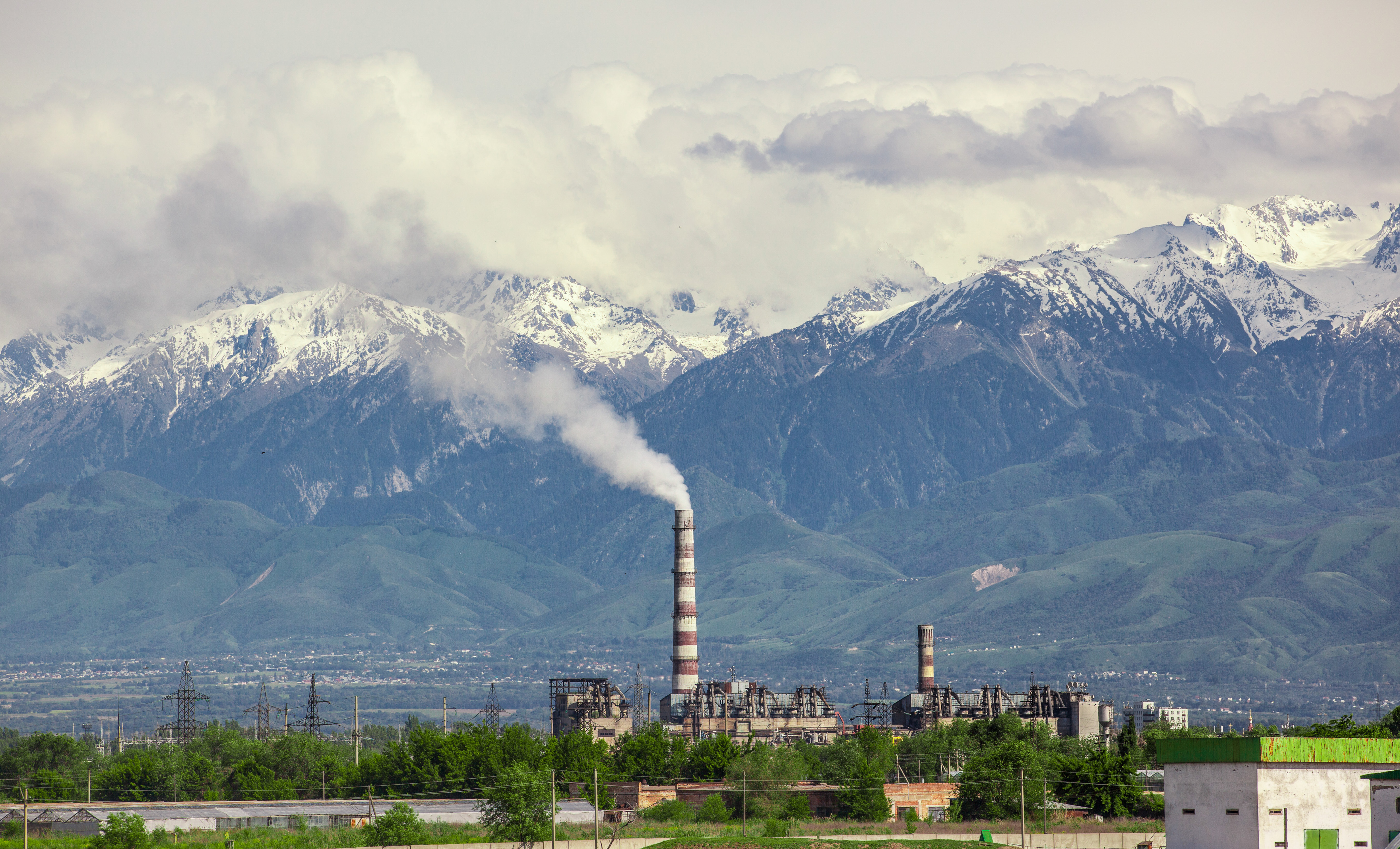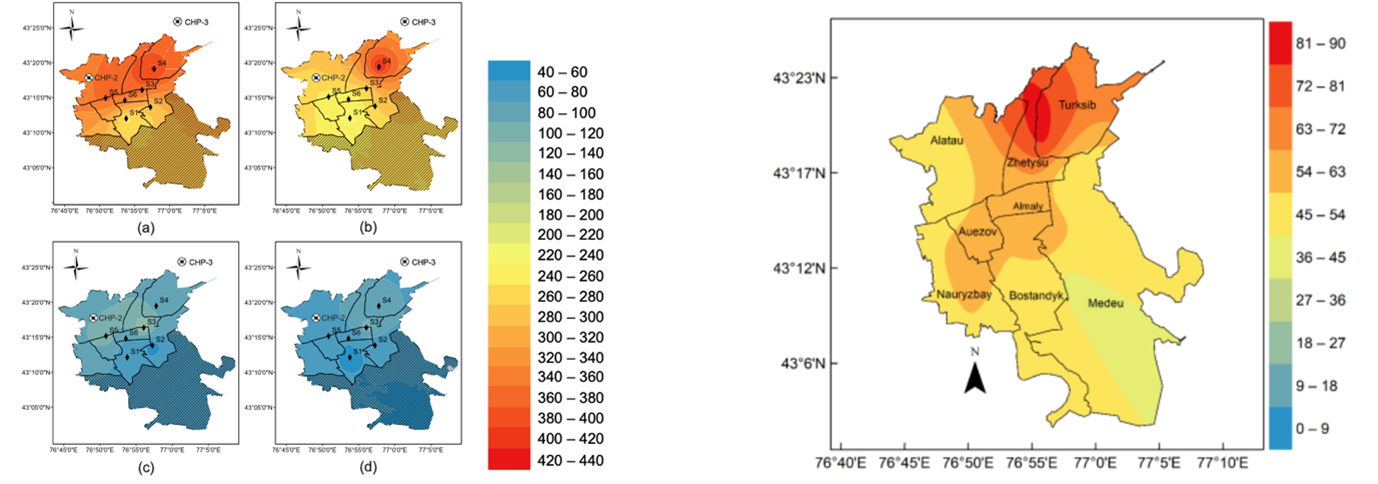Seizing the digital moment: From interlocking challenges to interoperable solutions
Published on 8 September 2022 by UNDP
Authors:
- Keyzom Ngodup Massally, Head of Digital Programming, UNDP Chief Digital Office
- Liv Marte Nordhaug, Co-Lead, Digital Public Goods Alliance

Digital public infrastructure (DPI) is the network of digital systems that enable society-wide functions and services. Countries are increasingly investing in DPI by adopting digital public goods (DPGs). Photo: UNDP Iraq
"Digital public infrastructure is becoming as essential to society as physical infrastructure, such as roads or railways."
At the upcoming 77th Session of the UN General Assembly, world leaders alongside members of the private sector and civil society will convene on 21 September for a side-event titled: ‘The Future of Digital Cooperation: Building Resilience through Safe, Trusted, and Inclusive Digital Public Infrastructure’. The event will map out a bold, inclusive and innovative digital cooperation agenda to put the rights of people at the centre of digital public infrastructure, and garner the technological and financial contributions needed to move it forward. Save the date to join the event online.
Disease outbreaks, food insecurity, political instability, economic volatility and climate change – today’s unprecedented global crises highlight a range of interlocking challenges. As a global community, we need to foster international cooperation that strengthens digital ecosystems and delivers meaningful impact. How can we build safe, trusted and inclusive digital public infrastructure that not only helps countries respond to current challenges, but enables them to effectively anticipate and mitigate future ones?
DPI can address complex realities
Digital public infrastructure is becoming as essential to society as physical infrastructure, such as roads or railways.
The degree to which countries were able to adapt to large-scale COVID-19 lockdowns or effectively manage the uptick in public health demands was determined by their existing digital infrastructure, and in some cases their capacity to quickly mobilize local digital ecosystems to create digital solutions.
Whenever conflicts disrupt people’s lives, timely and people-centric DPI is critical for addressing their immediate needs. In countries that lack data-driven early-warning systems, the increased frequency of extreme weather has been particularly catastrophic, impacting food security, economy and the overall well-being of people.
These challenges share a common thread: digital solutions are needed for inclusive and resilient responses, and underscore the need for equitable access to digital public infrastructure.
DPI in itself is not a silver bullet but can ensure that conditions and systems are in place to co-create localized, context-appropriate digital solutions. It provides an opportunity to flip the traditional donor-recipient development paradigm on its head, by engaging countries across income levels and diverse actors across society.
A sustainable foundation with #DPGs4DPI
People interact with DPI every day, from accessing public e-health services to using electronic payment systems for e-commerce. But, not all DPI is created equal. The quality of that interaction is contingent on how that infrastructure is built and implemented. Is it safe? Can it be trusted? Is it inclusive?
To deliver public and private services effectively, DPI needs to be all three. Countries with systems that are interoperable – where digital payments, identity verification and data exchange systems function as a well integrated network – are better equipped to meet people’s needs and meaningfully accelerate action towards the Sustainable Development Goals (SDGs).
This is where digital public goods can be leveraged. DPGs are open-source solutions designed with privacy safeguards and a ‘do no harm’ approach. They can be localized to meet context-specific needs and play a vital role in helping countries build DPI with the necessary safeguards.
Unlike proprietary solutions, #DPGs4DPI give governments ownership of their digital transformation journey, and in particular allow them to bypass the pitfalls of vendor lock-in. The open-source nature of DPGs also cultivates sharing and adoption, which facilitates new forms of cooperation between governments, as well as with the private sector and civil society.
Interoperable solutions for today’s world
Around the world, countries have been pioneering interoperable digital solutions through the adoption and adaptation of DPGs. This provides a framework for a rights-based approach to DPI and can help lower the costs of implementation, whilst respecting the agency of implementing countries.
Responding to COVID-19, Jamaica for instance implemented a pair of digital public goods: CommCare to facilitate real-time monitoring of vaccine delivery and distribution, and DIVOC to provide digitally accessible vaccine certificates. The success of these DPGs in other countries provided experiential learnings that facilitated their effective adoption.
In Ukraine, Trembita – the country’s data exchange system – is based on the concept of Estonia’s flagship interoperability system, known as X-Road. Trembita has been providing essential services to Ukrainians, such as registering births online, providing identity card application service, and enabling people to update their place of residence online. Ukraine’s ability to provide social protection and critical service delivery despite the ongoing war further emphasizes the importance of safe, inclusive and secure DPI.
The benefits of DPI in promoting inclusion and safeguards is also evident with AfCFTA, a cross-border initiative by the 54 countries that make up the African Union, for digital trade on the African continent. Supported by the United Nations Development Programme (UNDP), its potential to create the Africa-led common standards and shared principles to enable safe and secure data exchanges and payments is clear.
These examples illustrate that there is no one-size-fits-all digital solution, but by leveraging DPGs, countries can benefit from data and information sharing, shared-value partnerships, and experiential knowledge to scale their DPI to leave no one behind.
Urgent action is needed for digital cooperation
Building safe, trusted and inclusive DPI at global scale requires collective action.
Despite the recent shift towards harnessing emerging digital technology for the public good – especially during COVID-19 – there is a stark contrast between countries with weak digital infrastructure and those with strong ones in place. While some countries are able to capitalize on digital opportunities, others are being left behind.
Accelerating the #DPGs4DPI agenda offers a unique opportunity to change the existing dynamics. Success will require building inclusive roadmaps and plans; strengthening capacity building models; and putting into place governance frameworks that are user-centric and have accessible redressal mechanisms for people with limited connectivity.
From governments, international organizations, civil society, private sector stakeholders, to funders, everyone can contribute to this new era of digital cooperation. This includes:
- Increasing financial investments in the key levers of digital cooperation for DPI:
Invest in digital public goods that can form part of countries’ foundational digital public infrastructure, as well as those that can help countries accelerate the Paris Climate Accord and collectively solve other pressing global challenges;
Invest in long-term capacity building efforts such as academic knowledge hubs, implementation research programs, engineer training programs, and other types of long-term training efforts in order to foster a healthy digital ecosystem where the public sector can access neutral and local expertise;
Invest in the expertise and services needed for DPGs for DPI to be successful, including legal services, security audits and governance frameworks; and
Invest in civil society organizations, NGOs and academic institutions to build knowledge, create informed and transparent debate and hold governments accountable for how DPI is planned, deployed and implemented.
- Facilitating deeper enablement and widespread knowledge sharing around the key levers of digital cooperation for DPIs, including sharing access to and adoption of DPGs to support stakeholders with the knowledge, tools and resources they need to plan and build safe, trusted and inclusive DPI.
Through collective action, we can work towards a diverse set of relevant and sustainable DPGs that are designed, financed and governed to enable countries to access, adopt, and adapt them when building their DPI. We can help strengthen local digital ecosystems so they have sufficient public and private sector capacity to plan, regulate, deploy and evolve DPI. We can build DPI that has sufficient risk assessments and safeguards in place for meaningful society-wide impact and achievement of the SDGs.
All of this requires a bold, inclusive and innovative digital cooperation agenda and now is the time to seize the moment!
Save the date to join the ‘The Future of Digital Cooperation: Building Resilience through Safe, Trusted and Inclusive Digital Public Infrastructure’ UNGA77 side event on 21 September.
Article retrieved from https://www.undp.org/blog/seizing-digital-moment-interlocking-challenges-interoperable-solutions





